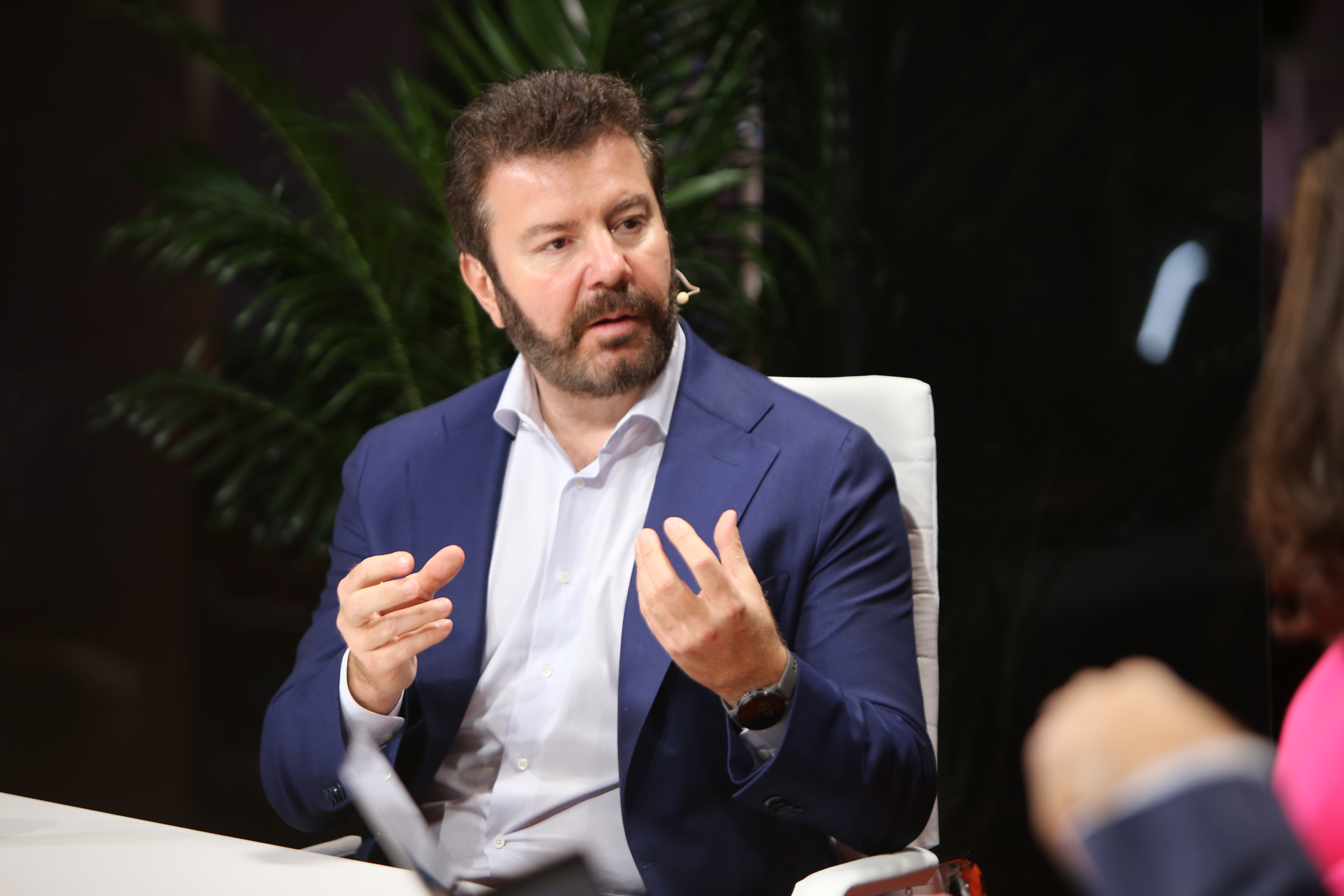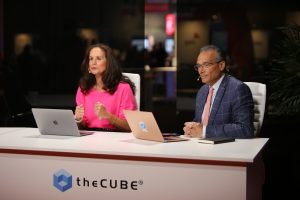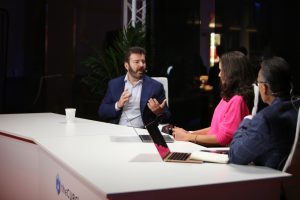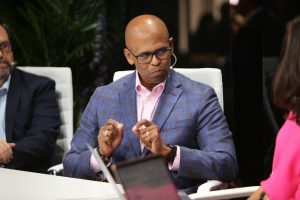 AI
AI
 AI
AI
 AI
AI
Automation and artificial intelligence is rapidly advancing. Businesses are embracing new strategies that blend human expertise with cutting-edge technology to drive productivity and redefine workflows, including UiPath enterprise-scale automation.
Transforming with AI has been a key focus in recent months for UiPath Inc., a company that has sought to differentiate itself among others as an early player in enterprise-scale automation. The company has been looking to develop its leadership roles and ecosystem of strategic partners.
The next steps for UiPath enterprise-scale automation were a central focus of the UiPath Forward 2024 event, which took place Oct. 21-24. The change comes amid a new era, according to theCUBE Research’s Dave Vellante.

At UiPath Forward 2024, theCUBE covered the latest news and developments.
“The application stack is about to completely change, and UiPath hopes to play a major role in that agent orchestration layer,” he said.
Use cases in enterprise AI for automated tasks were explored by theCUBE analysts during the event. They talked with thought leaders about developments in the agentic AI space and what comes next for UiPath enterprise-scale automation. (* Disclosure below.)
Here are three key insights you may have missed from the UiPath Forward 2024 event:
The changes emerging tied to the agent orchestration layer are important to keep an eye on. They’re changing the role of AI, according to Vellante.

Rebecca Knight and Dave Vellante of theCUBE discussed the latest news during UiPath Forward 2024.
“Things like causal AI, how to harmonize the data, the whole agent orchestration framework, backend connections, all that stuff is increasingly important. UiPath today has its fingers in a lot of those pies,” Vellante said, during an analyst segment at UiPath Forward.
UiPath has said it has 10,000 global customers, which is good news, according to Vellante. They have also ebbed and flowed with go-to-market.
“I think at one point they’re really trying to sell to the C-suite. I think for UiPath, that’s where partnerships come in,” he said. “When you’re working with some of these GSIs and other partners that have access to that C-suite, I think that’s a good role for the partners. I think UiPath brings the product expertise.”
During the Day 2 Keynote Analysis, Vellante and co-host Rebecca Knight discussed how single-agent systems are often seen as limited and rudimentary. UiPath is building out an agent control framework, with its “Agent Builder” slated for release soon.
“You got intelligent automation and bots, and then you got semi-autonomous. [Bobby Patrick, CMO of UiPath] said the only real AI piece today in the UiPath portfolio was document understanding,” Vellante said. “That’s where the most of the AI is today. Then agentic is on top of that. I would say it’s at least three to four years before you see true agentic orchestration that is going to have meaningful prejudice impact.”
Here’s the complete keynote analysis with Dave Vellante and Rebecca Knight:
During the event, Daniel Dines (pictured), founder and chief executive officer of UiPath, spoke about how this point in time represents the most seminal moment in the company’s history, referring to it as “act two.” Act one was about imitating people and doing repetitive work, as long as the work was defined by rules, according to Dines.

Daniel Dines of UiPath talks to theCUBE about UiPath enterprise-scale automation.
“The information that the people used on their work was really structured so a robot can understand it,” Dines said, while discussing UiPath enterprise-scale automation during UiPath Forward 2024. “It was actually hard work to make it working reliably, because when you imitate people, it’s always more difficult than when you go with other, more precise ways, and there are also a lot of exceptions.”
The company had to create an orchestration piece that combines robots and humans, according to Dines. Humans are capable of handling exceptions raised by robots.
“But that was that big limitation of act one … you cannot interact with an automation in a natural language,” he said. “You always have to be structured, to put in a form in front of an automation, send a request in a very structured form.”
That was limiting, because if one looks into enterprise processes, many of them will have a mix of rule-based tasks and the unstructured type, Dines added. Sometimes they are intermingled, meaning it’s not very easy to separate them.
“We have to learn how can we deploy this gen AI technology that is capable of navigating the unstructured part,” Dines said. “But the biggest challenge is this technology has agency [that] is nondeterministic. So, how can we make a non-deterministic technology reliable, and how can we deliver into an enterprise workflow context that should be reliable?”
Here’s the complete video interview with Daniel Dines:
Across different sectors, it’s clear that the success of automation hinges not only on advanced technologies such as UiPath enterprise-scale automation, but also on ensuring that the workforce is integrated into the transformation process. That focus was displayed at UiPath Forward for several companies, including Coca-Cola Beverages Florida LLC.

Terrence Gee at Coca-Cola talks with theCUBE about AI-driven insights.
“We try to make sure that we can bring technology and the use of data through all of those major capabilities,” said Terrence Gee, senior vice president of technology and enterprise transformation at Coca-Cola. “The way we make the products is a complicated process. But our ability to draw insights from those processes to bring that process and those capabilities to life in a more streamlined and efficient way is what we’re all about.”
While Coca-Cola showcased how AI-driven insights are boosting efficiency, others emphasized the need to balance innovation with secure, reliable systems. It’s integral to ensure governance and security and minimize workforce disruptions, according to Craig Le Clair, vice president and principal analyst at Forrester Research Inc.
“A lot of the AI is helping with the human intent understanding,” Le Clair said, during UiPath Forward. “It’s helping to reduce the friction between the applications and so forth. But without taking that human intent and doing something with it, getting something done, it becomes kind of sterile.”
A focus on practical, impactful deployment was found elsewhere throughout UiPath Forward. Inflection AI Inc. and Intel Corp. previously launched a partnership designed to help enterprises tackle critical workloads and model deployment with AI, and outlined details around that partnership at UiPath Forward.
“In Inflection AI, we’re testing the use cases, what are the models?” said Motti Finkelstein, chief information officer of Intel. “We care about the model, we care about the data, and the data is incredibly important to the enterprise. We have to make sure privacy rules are adhered to; we have to make sure security rules are adhered to. We are focused in AI on very large and very potentially, I’m going to say, game-changing items.”
Throughout UiPath Forward, it was clear that there’s a view that automation has the potential to streamline complex workflows across diverse sectors. That includes healthcare, and the Mayo Clinic has sought to pursue healthcare automation while maintaining the human touch.
“Imagine now all the state-of-the-art automations that we can utilize and deploy. For the first time, I actually see that I can give that human touch to my patients because these technologies enable my diagnostic capability, they cut down my administrative time on tasks that actually pull me away from my patients,” said Anjali Bhagra, M.D., physician lead and chair, Automation Core, at the Mayo Clinic.
Here’s the complete video interview with Terrence Gee and Rob Kennedy, client account director at Capgemini Services SAS:
Here’s the complete video playlist, part of SiliconANGLE’s and theCUBE Research’s coverage of the UiPath Forward 2024 event:
(* Disclosure: TheCUBE is a paid media partner for UiPath Forward. Sponsors of theCUBE’s event coverage do not have editorial control over content on theCUBE or SiliconANGLE.)
Support our mission to keep content open and free by engaging with theCUBE community. Join theCUBE’s Alumni Trust Network, where technology leaders connect, share intelligence and create opportunities.
Founded by tech visionaries John Furrier and Dave Vellante, SiliconANGLE Media has built a dynamic ecosystem of industry-leading digital media brands that reach 15+ million elite tech professionals. Our new proprietary theCUBE AI Video Cloud is breaking ground in audience interaction, leveraging theCUBEai.com neural network to help technology companies make data-driven decisions and stay at the forefront of industry conversations.